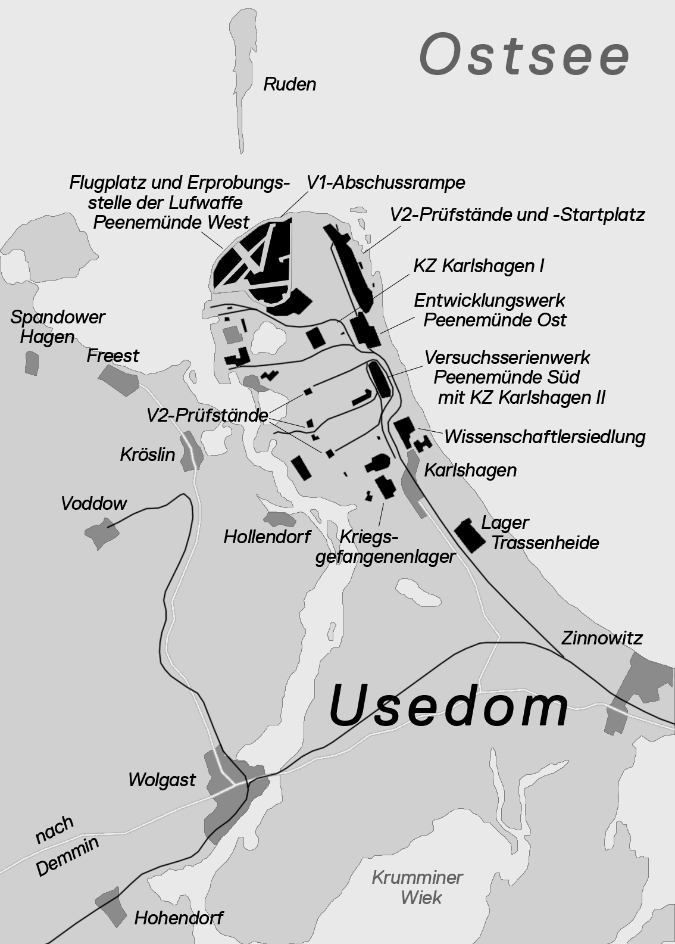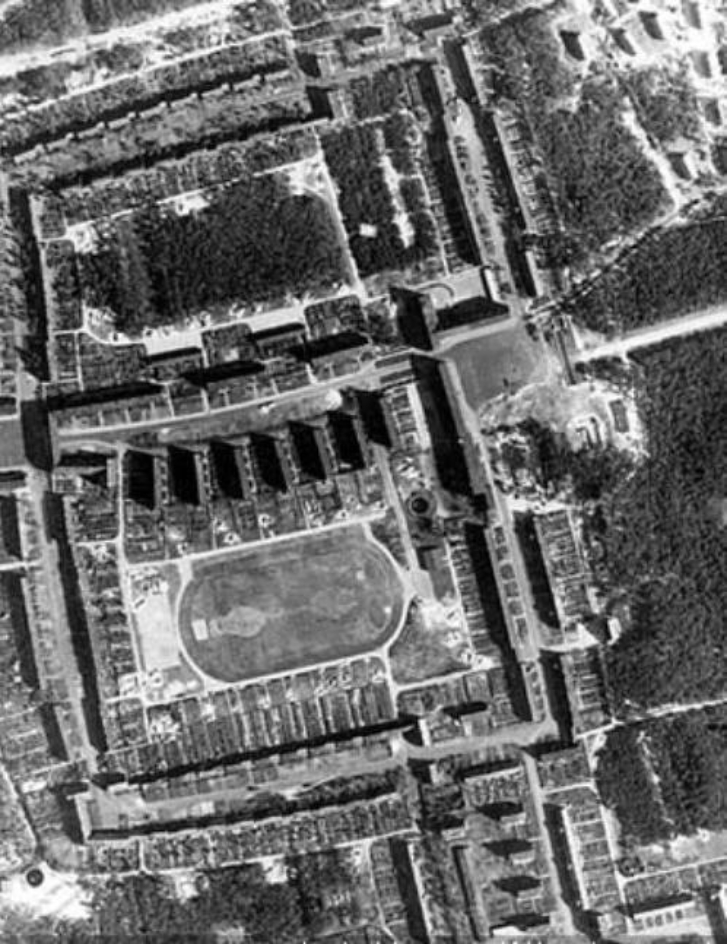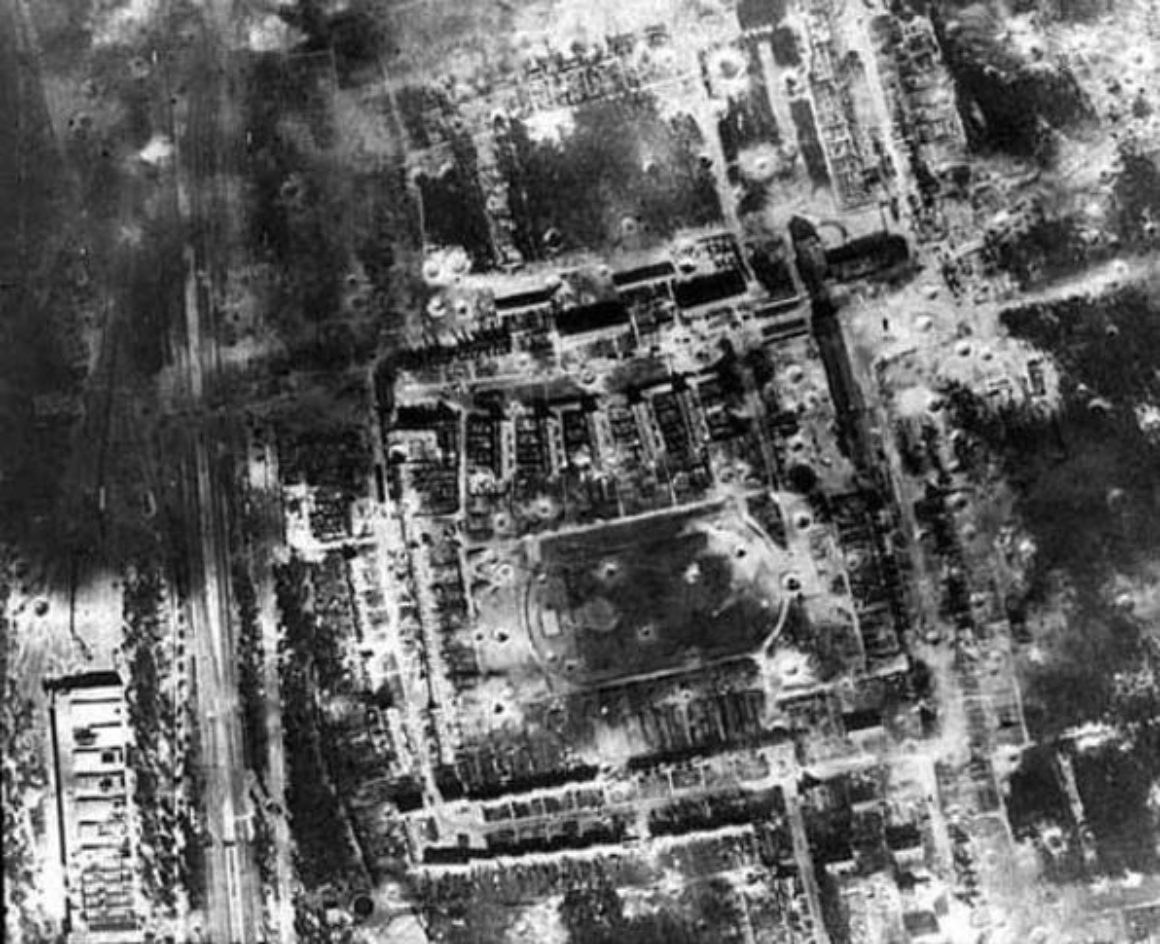
1/3
Map of Peenemünde and surroundings, 1943
(according to Michael J. Neufeld, own work, Mittelbau-Dora Memorial)
(according to Michael J. Neufeld, own work, Mittelbau-Dora Memorial)

2/3
Aerial photography of the housing estate of the Peenemünde Army Research Center in Karlshagen before the air raid, 1943
(Royal Air Force)
(Royal Air Force)

3/3
Aerial photography of the housing estate of the Peenemünde Army Research Center in Karlshagen after the air raid, 1943
(Royal Air Force)
(Royal Air Force)
In the night of 17 August 1943, Royal Air Force formations flew the first bombing raids on the military facilities in Peenemünde on the northwest corner of the island of Usedom in the Baltic Sea, where the Wehrmacht had been developing and testing ballistic rockets since the mid-1930s. The missiles, known as V2s, were meant to bring about the decisive turning point in the “total war.”
Concentration camp inmates were used as forced labor in the V2 production in Peenemünde. During the bombing 18 of them were killed. The attack made it clear to the Nazis that the production facilities in Peenemünde were vulnerable to enemy bombers, and a few days later the decision was made to move the rocket production underground.

